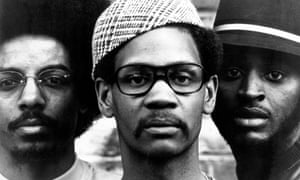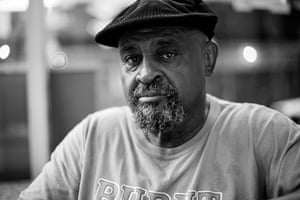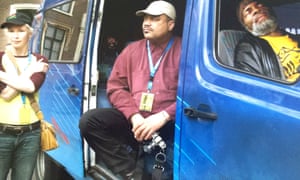Monday, December 5, 2016
$$$ Noninvasive Research Study. National Human Genome Research Institute
The National Human Genome Research Institute of
the National Institutes of Health (NIH) is seeking healthy adult volunteers to
participate in a research study. Doctors want to study the chromosomes in
healthy individuals so they can learn more about why some people develop
chromosome abnormalities and some do not.
Eligible participants:
For more information, call:
Office of Patient Recruitment
1-866-444-1132
TTY: 1-866-411-1010
Online: clinicaltrials.gov and search by study 12-HG-0181
Eligible participants:
- Are healthy
- 18-55 years old
- Have one outpatient visit that will last about four
hours
- Have a physical exam
- Have bloodwork and two skin biopsies
- Receive compensation for your participation
For more information, call:
Office of Patient Recruitment
1-866-444-1132
TTY: 1-866-411-1010
Online: clinicaltrials.gov and search by study 12-HG-0181
|
|
Questions?
Contact Us |
Sunday, December 4, 2016
DHS Reverse Industry Day (January 10, 2017) Register Now in FAITAS!
The next Department of Homeland Security (DHS) Reverse
Industry Day (RID) is fast approaching. After the overwhelming success of the
first and second RIDs, the Office of the Chief Procurement Officer will be
hosting a third event on Tuesday, January 10, 2017. This full-day
event is a unique opportunity to engage with industry representatives to learn
more about industry processes and methodologies related to identifying and
tracking DHS opportunities, pricing, proposal preparation, and various contract
performance considerations. Past events have featured important topics
such as demystifying the private sector, how vendors decide whether to bid (or
not) on a solicitation, and factors affecting innovation and the participation
of non-traditional vendors. You will have an opportunity to ask specific
questions of the industry panel members and hear from Chief Procurement Officer
Soraya Correa as well as other DHS senior leaders about the importance of your
role in industry engagement and how it directly supports the DHS mission.
RID is a no-charge, resident event in support of
Acquisition Innovations in Motion and the Secretary’s Unity of Effort
initiative. It is designed to improve DHS’s understanding of industry
practices related to identifying, tracking, pricing, bidding, winning, and
performing on DHS contracts. The purpose is to provide the acquisition
workforce an opportunity to learn about the issues that are most important to
industry when doing business with the Department.
This
event will be held on Tuesday, January 10, 2017 from 9:00 AM to 5:00 PM
EST and is available for registration via FAITAS; look for
FCL-DHS-0041. Step by step registration instructions are below. Space is limited, and on a first come first serve basis, so register soon.
*Please note that registration MUST be completed by Wednesday,
January 4, 2017, before 11:59 pm.
8
CLPs
will be given for participating in this
event.
Date:
Tuesday,
January 10, 2017
Location
of Event:
Omni Shoreham Hotel 2500 Calvert St NW, Washington D.C. 20008
Time: 9:00 AM – 5:00
PM EST (Registration begins the morning of the event at
8:00 AM)
Parking: Valet available
at hotel for $49/day
Metro: Woodley Park-Zoo
Metro Station (Red Line)
HOW
TO REGISTER IN FAITAS:
·
Login to FAITAS - https://faitas.army.mil/faitas
·
Click “Manage Career/Training/Search for Training” link
·
Select the top-right radio button under the Standard Search to “Order by Course
Number”
·
Select “Course ID” from the drop down list (Example: FCL-DHS-0041), and
click submit
·
Select the location (Example: Washington, DC)
·
Click on the Class # (Example # 001)
·
Then click on “Submit Request” button at bottom of page
Best
regards,
2017 Presidential Inauguration. Work in D.C.? Do you really want to got to work that day?
Federal employees in the Washington, D.C. metro
area only will have to report to work for three days during the week of Jan. 16.
The Office of Personnel Management confirmed the
plan is for federal workers to be off on inauguration day, Jan. 20.
Acting OPM Director Beth Cobert wrote a memo explaining
that every federal employee around the country will be off on Jan. 16 in
commemoration of Martin Luther King Day.
Additionally,
she said federal employees who work in the “Inauguration Day area,” which is
defined in law as the District of Columbia, Montgomery and Prince George’s
Counties in Maryland, Arlington and Fairfax Counties in Virginia, and the
cities of Alexandria and Falls Church in Virginia, will be off on Jan. 20 as
well.
“The legislative history states that the holiday was established
to allow employees working in the inauguration day area to attend the nearby
inaugural ceremonies and to avoid the traffic problems and work disruptions
that would occur if employees were required to report for duty,” Cobert wrote.
OPM also clarified how telework agreements will work on Jan. 20.
Employees
who are scheduled to telework on inauguration day
at a location within the DC metro area are off that day no matter where their
official worksite is located.
Employees who are scheduled to telework on inauguration day at a location
outside the DC metro area are not on vacation that day, again, no matter where
their worksite is located.
Additionally, agencies are strongly encouraged to let federal
employees telework or work an alternative work schedule the other three days of
the week.
“In addition, federal employees who work in the downtown
Washington, DC, area and its vicinity should expect significant commuting
delays and travel disruptions on Wednesday, January 18 and Thursday, January 19
due to extensive road closures, mass transit changes, motorcades, and the
establishment of security perimeters,” Cobert wrote. “To help alleviate traffic
congestion and minimize distraction to law enforcement and security officials,
the U.S. Office of Personnel Management (OPM) is urging agencies to permit
employees to use their workplace flexibility options on Wednesday,
January 18
and Thursday, January 19. Accordingly, OPM strongly encourages agencies to
allow employees to telework to keep the federal government operating while
helping to minimize traffic congestion and support law enforcement efforts
during these events. Employees may also request to use their alternative work
schedule day off, annual leave, leave without pay, previously earned
compensatory time off, and/or earned credit hours under a flexible work
schedule.”
Saturday, December 3, 2016
Mark your Calendar. December 15, 2016. Methods of Communication in Disasters.
Mark you calendar. One of our members (Ms. Alicia Hamilton) will be presenting on how communities can come together. CDS. CEO BEMA
Webinar: Methods of Communication in
Disasters— Preparing to Receive, Provide and Act on Critical Information in
Times of Crisis
FEMA’s DHS Center for Faith-based &
Neighborhood Partnerships and FEMA’s Individual and Community Preparedness
Division invites you to a webinar on Thursday, December 15, 2016. Representatives
from FEMA will be joined by faith and community leaders to highlight
various methods that governments and communities can use to communicate with
one another and the broader community in disasters. This webinar will also
feature preparedness activities and resources to effectively receive, provide
and act upon critical information.
Please click the following hyperlink to
register for the webinar: Methods
of Communication in Disasters—Preparing to Receive, Provide and Act on Critical
Information in Times of Crisis
Date: Thursday, December 15, 2016
Time: 1:00 – 2:30 p.m. EST
Featured
Speakers:
- Antwane
Johnson, Director, FEMA Integrated Public Alert & Warning System
- Martin
Pittinger, FEMA Office of the Chief Technology Officer
- Kaylynn
Beck, FEMA External Affairs
- Chaplain
Yisrael Bursztyn, New Jersey Chaplains Association
- Alicia
Hamilton, PACRED and The Revelation Network
- William
Patterson, Los Angeles Amateur Radio Club
- Moderator:
Jannah Scott, DHS Center for Faith-based & Neighborhood Partnerships
- Please
register
for the event using the Adobe Connect registration web link:
- Be
sure to test your Adobe Connect connection prior
to the meeting.
- This
webinar will offer closed captioning.
The Last Poets. 1970's
The
Last Poets: America in poetry from black power to Black Lives Matter

“The Last Poets are the
microcosm of black America,” said Umar
Bin Hassan, one of the founding members of the group, when I first
met him in Harlem, New York, a decade ago. And he’s right: the turbulent and
sometimes violent history of this legendary group of African American men who
became famous worldwide in the late 1960s and early 70s with self-critical,
militant poems (“Niggers are scared of revolution. Niggers love anything but
themselves”) not only influenced generations of hip-hop and soul artists – such
as Public
Enemy, Ice
Cube, Ice-T,
2Pac,
Common,
Mos
Def and Erykah
Badu – but also the likes of David
Bowie and Mick
Jagger. Their fluent and funky conga-rhythms transformed poetry into
rap (a novelty at the time, though perhaps not today).
Umar Bin Hassan, now 68, is in a position to
reflect on their remarkable collective strength, resilience and hope. The Poets
always bounced back, no matter how much they struggled – and boy, did they
struggle. Umar, in particular, lived on the streets as a crack addict for years
and found success very hard to handle. Growing up in a ghetto, where he was
told “You ain’t shit” from a very young age, Umar worked as a shoeshine boy in
a red-light district to escape his father’s abuse. Racism, poverty and social
exclusion left their destructive marks on him; as Bin Hassan put it in one of
his autobiographical poems: “Self-hatred wrapped up in a twisted, demented but
well-controlled smile.”

From
the first moment I discovered the Last Poets – through my 11-year-old,
hip-hop-obsessed son – and from the first time I met them, I was completely
absorbed by their life stories and poetry, which continues to reflect today’s
black America.
The
Last Poets started out during the black power movement, in the
years, months and days after Martin Luther King, Robert F Kennedy and Malcolm X
had been murdered. They were young men living in the black ghettos of Akron,
Ohio, Detroit, Michigan, Jamaica Queens and The Bronx – all desperately seeking
a different life to that of their parents, who in their eyes were too subdued,
too damaged by racial oppression.
Inspired by the music of John Coltrane, the glamour
of the Temptations and the politics of black pride, they started performing on
street corners in Harlem where they immediately gained a following. But it
wasn’t until 1970, when Alan Douglas – the white record producer who made Jimi
Hendrix a star – convinced them to record their first album (Douglas drove into
the heart of Harlem in his silver Jaguar and appealed to them himself), that
they experienced fame. It became an instant classic. “White death will froth
the walls of museums and churches breaking the lies that enslaved our mothers
when the revolution comes,” is recited on When
the Revolution Comes. “The Statue of Liberty is a prostitute,” is
shouted out, on New York, New York.
Their
poetry seemed stronger then themselves, visionary even. But despite their
self-awareness, their scope for self-criticism didn’t prevent them from getting
into trouble; Umar and Félipe Luciano (former leader of the Puertorican Black
Panthers, now a politician) got mixed up in drugs; Jalal Mansur Nuriddin became a hustler; and
Abiodun Oyewole was in prison by the time the first Last Poets album came out,
and heard other inmates sing words he wrote from other cells.
When they were all together, they almost killed
each other fighting over rights and money. It was all too much for some: the
original founder of the Last Poets, David Nelson, retreated to his sisters’
house; fellow original member Gylan Kain moved to Europe. By the late 1970s,
their popularity had declined. Their disintegration coincided with the downfall
of the black consciousness movement in America; the FBI’s Cointelpro programme
had infiltrated all the major black political organisations, the Black Panther
party was in disarray and drugs were flooding into black neighbourhoods.
But the Last Poets were saved by their art. When
young hip-hop bands such as A Tribe Called Quest started sampling the Last
Poets’ words in their own raps in the early 1990s, Umar started writing poetry
again. After hearing his own voice on the radio, Umar went to Abiodun’s house
in Harlem and told him: “We still got something to say to the kids.” He started
reciting new work: “Arrogance is the demon that will kill us, before the white
men, before the drive-bys...”
It was the start of a new beginning. Umar and
Abiodun began working together again, recording new albums, and collaborating
with artists such as Common, Erykah Badu, and bands like Dead Prez. And they
found peace. Since then, despite all their internal fights, they have performed
together on stage at various points; wiser, a bit sadder perhaps, but no less
inspiring or militant.

Writing
a book about the Last Poets changed my life, not only as a person but as an
author. After spending months in America with these audacious artists who were
so far ahead of their time, I felt I could do anything as a writer, even making
music with words, just like the Last Poets themselves. Artistically, they
taught me to be completely free. And more broadly, they remain so relevant:
race remains one of the most urgent matters of our time. Not only in America,
where a new generation is fighting racism and police violence, but also in
Europe, where xenophobia and racism have become more open, more common.
Ultimately, the story of the Last Poets is about human resilience and beauty’s
sustaining power. I remember Umar telling me: “You have to turn yourself inside
out, until something raw and honest comes to the surface. Something unique, not
like anything else.” I definitely had to turn myself inside out. And I am glad
I did.
The Last Poets by Christine Otten, translated from
the Dutch by Jonathan Reeder, is published by World Editions (£12.99).
Students4Garvey” campaign. Exonerate Pan-African Leader Marcus A. Garvey. December 3, 2016
In the U.S. our history may not be taught in schools, but we must ensure our written and oral history are passed on to our future leaders.
BEMA


BEMA
Dr. Julius Garvey, the son of the legendary Pan-African
leader Marcus A. Garvey, was in Washington last evening for a “Students4Garvey”
campaign event. The campaign is centered around educating young
African-Americans about the life and work of Marcus Garvey, and to encourage
their letter writing to President Barack Obama to exonerate the record of
Garvey.

|
Black Emergency Managers
Association
|
||
|
1231 Good Hope Road S.E.
|
||
|
Washington, D.C. 20020
|
||
|
Office: 202-618-9097
|
||
|
bEMA
|
||
Heights by great men reached and kept were not obtained by sudden flight
but, while their companions slept,
they were toiling upward in the night.
Henry Wadsworth Longfellow
Cooperation,
Collaboration, Communication, Coordination, Community engagement, and Partnering (C5&P) A 501 (c) 3
organization.
Subscribe to:
Posts (Atom)
